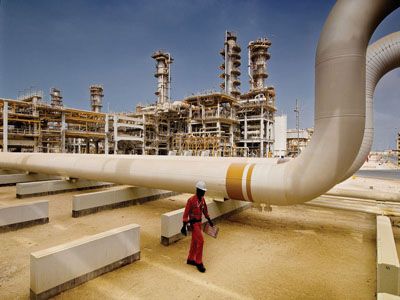The hard times are indeed here as cash-crunched Federal Government has decided to borrow money to fund its capital projects and meet other obligations next year.
This follows the sudden difficulty of finding buyers for her crude even as it unveiled on Friday series of ambitious developmental plans.
Nigeria’s crude oil production declined by 205,300 barrels per day in November, as indicated in the latest report of the Organisation of Petroleum Exporting Countries (OPEC), while other members of the cartel produced beyond their respective quotas during the month.
In a recent development, the Federal Government indicated plans to raise its debt obligation to fund capital and other development projects.
The financial sector is not left out as it rolls out initiatives and incentives to drive employment for at least, one million graduates, through small business support and ownership.
This revelations were made by the Minister of Finance, Mrs. Kemi Adeosun, while speaking at the Seventh Yearly Bankers Committee Retreat, in Lagos on Friday.
She said that the country has a Debt-to-Gross Domestic Product which is as low as 12 per cent to hold on to “and that gives us some space to manage our deficit budget, which is aimed at stimulating growth.
Adesoun said, “To do that, we need some fiscal house-keeping. We need to borrow, but it must be with the objective of investment in infrastructure and capital projects.
“To achieve this, we still need to look at our budget. If we continue along the trajectory of the recurrent and capital expenditure, together with the supplementary budget just passed, we may end up borrowing for recurrent expenditure. We need the fiscal housekeeping to ensure that our revenue comes in and that expenditure goes out as well.
“We have a sense of where we are going with our Medium Term Expenditure Framework being articulated already, but it is important that you as bankers know because we are coming to you principally to raise money. I need to give you the assurance that we will be raising money, but we are going to do everything possible to ensure that the institutional borrowing goes into detailed expenditures that will produce dividends to the economy.
“Nigeria can overcome the challenges. I am not here to whitewash the situation or paint a picture of how tough it is going to be, but how we are going to make decisions that will provide a way out.
“We must share ideas of how we will deliver the growth needed in the economy and the growth is there in the Small and Medium Enterprises (SMEs) sector. Fifty per cent of our GDP is SMEs, so if we solve the problem of SME, we will actually generate the wealth we need in the economy.”
Meanwhile, the Governor, Central Bank of Nigeria , Mr. Godwin Emefiele, has said that the CBN is already concluding plans for a programme that would support SMEs, particularly, lending money at “concessionary and ridiculously concessionary pricing, to our young graduates in 2016.””
According to him, “We have so many graduates, who don’t have jobs. We need to get more people engaged. For banks, there is the need to find out how to give support to the young graduates.
“In the course of the next few weeks, we would be unfolding the plan of support by CBN to create employment for at least, one million graduates in Nigeria in 2016.
“We must trust them. We must give them a chance, because they can do it. The details, I repeat, of the programme we are planning now, mean that if you (banks) refuse to support, their money that we would have released through the Cash Reserve Requirement, will be taken and lent through any channel that will give these young graduates jobs.
“We all need to think together and act in one purpose. There is no need to release the money and all you do is to buy treasury bills. We cannot continue this way. We must diversify this country away from oil and the time is now.”
-Emmanuel Ikechukwu














